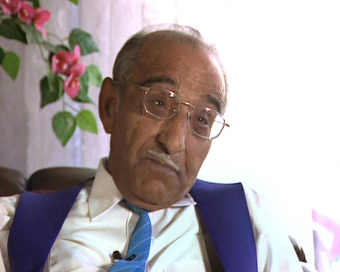Monowitz Interviews from the USC Shoah Foundation Institute Visual History Collection in the Workroom of the Wollheim Memorial

© USC Shoah Foundation Institute
As a result of his experiences while making the film Schindler’s List (USA 1993, directed by Steven Spielberg), Steven Spielberg used the movie’s box-office returns to found the Survivors of the Shoah Visual History Foundation in 1994, for the purpose of creating a collection of video testimonies of survivors and other witnesses of the Holocaust. In the following years, around 52,000 interviews were conducted in 56 countries and 32 languages. Most of the interviews were conducted with Jewish survivors of the Holocaust. In addition, there are video interviews with members of other groups persecuted under National Socialism—the Sinti and Roma, homosexuals, Jehovah’s Witnesses, political persecutees—and with helpers, liberators, and people involved in war crimes trials.
In 2006, the Survivors of the Shoah Visual History Foundation became part of the University of Southern California (USC). There the Shoah Foundation Institute for Visual History and Education was founded. The USC Shoah Foundation Institute’s archive of roughly 50,000 video interviews is also accessible at the Free University of Berlin (Freie Universität Berlin).
The collection of the Visual History Archive includes around 750 interviews with survivors of the Buna/Monowitz concentration camp. Thanks to the kind assistance of the staff of the USC Shoah Foundation Institute, a selection of 65 of these interviews is available in the workroom of the Wollheim Memorial. The selection stems from our desire to add another spectrum to that already represented by the oral-history perspectives of the Memorial’s interview project, which reflect the various social and geographic origins of the interviewees, as well as the wide diversity of their decisions in life following liberation.
In addition to the interviews with Holocaust survivors, the USC Shoah Foundation Institute also conducted a number of interviews with people involved in the war crimes trials. Three of these interviews with former staff members of the American investigative and prosecuting authorities in the trial of I.G. Farben in Nuremberg are also available in the workroom of the Wollheim Memorial.
(MN; transl. KL)
















